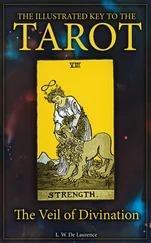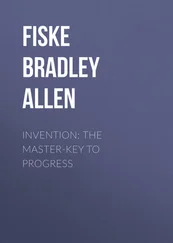23. The subconscious mind cannot argue controversially. Hence, if it has accepted wrong suggestions, the sure method of overcoming them is by the use of a strong counter-suggestion, frequently repeated, which the mind must accept, thus eventually forming new and healthy habits of thought and life, for the subconscious mind is the seat of Habit. That which we do over and over becomes mechanical; it is no longer an act of judgment, but has worn its deep grooves in the subconscious mind. This is favourable for us if the habit be wholesome and right. If it be harmful and wrong, the remedy is to recognize the omnipotence of the subconscious mind and suggest present actual freedom. The subconscious being creative and one with our divine source will at once create the freedom suggested.
24. To sum up: The normal functions of the subconscious on the physical side have to do with the regular and vital processes, with the preservation of life and the restoration of health; with the care of offspring, which includes an instinctive desire to preserve all life and improve conditions generally.
25. On the mental side, it is the storehouse of memory; it harbours the wonderful thought messengers, who work, unhampered by time or space; it is the fountain of the practical initiative and constructive forces of life: It is the seat of habit.
26. On the spiritual side, it is the source of ideals, of aspiration, of the imagination, and is the channel through which we recognize our Divine Source, and in proportion as we recognize this divinity do we come into an understanding of the source of power.
27. Someone may ask: "How can the subconscious change conditions?" The reply is, because the subconscious is a part of the Universal Mind and a part must be the same in kind and quality as the whole; the only difference is one of degree. The whole, as we know, is creative; in fact, it is the only creator there is; consequently we find that mind is creative, and as thought is the only activity which the mind possesses thought must necessarily be creative also.
28. But we shall find that there is a vast difference between simply thinking and directing our thought consciously, systematically and constructively; when we do this we place our mind in harmony with the Universal Mind, we come in tune with the Infinite, we set in operation the mightiest force in existence, the creative power of the Universal Mind. This, as everything else, is governed by natural law, and this law is the "Law of Attraction," which is that Mind is creative, and will automatically correlate with its object and bring it into manifestation.
29. In Part One I gave you an exercise for the purpose of securing control of the physical body; if you have accomplished this you are ready to advance. This time you will begin to control your thought. Always take the same room, the same chair, and the same position, if possible. In some cases it is not convenient to take the same room: in this case simply make the best use of such conditions as may be available. Now be perfectly still as before, but inhibit all thought; this will give you control over all thoughts of care, worry and fear, and will . enable you to entertain only the kind of thoughts you desire. Continue this exercise until you gain complete mastery.
30. You will not be able to do this for more than a few moments at a time, but the exercise is valuable, because it will be a very practical demonstration of the great number of thoughts which are constantly trying to gain access to your mental world.
31. In Part Three you will receive instructions for an exercise which may be a little more interesting, but it is necessary that you master this one first.
PART TWO
11. What are the two modes of mental activity?
Conscious and subconscious.
12. Upon what do ease and perfection depend?
Ease and perfection depend entirely upon the degree in which we cease to depend upon the conscious mind.
13. What is the value of the subconscious?
It is enormous; it guides us, warns us, it controls the vital processes and is the seat of memory.
14. What are some of the functions of the conscious mind?
It has the faculty of discrimination; it has the power of reasoning; it is the seat of the will and may impress the subconscious.
15. How has the distinction between the conscious and subconscious been expressed?
"Conscious mind is reasoning will. Subconscious mind is instinctive desire, the result of past reasoning will."
16. What method is necessary in order to impress the subconscious?
Mentally state what is wanted.
17. What will be the result?
If the desire is in harmony with the forward movement of the great Whole, forces will be set in motion which will bring about the result.
18. What is the result of the operation of this law?
Our environment reflects conditions corresponding to the predominant mental attitude which we entertain.
19. What name has been given to this law?
The Law of Attraction.
20. How is the law stated?
Thought is a creative energy, and will automatically correlate with its object and bring it into manifestation.
Cause and effect is as absolute and undeviating in the hidden realm of thought as in the world of visible and material things. Mind is the master weaver, both of the interior garment of character and the outer garment of circumstance.
—James Allen.
Table of Contents
Tells why the necessary action and interaction of the conscious and subconscious minds requires two corresponding systems of nerves. It explains how the connection is made between these two systems of nerves. It explains and tells of a central point in the body for the distribution of energy. How this energy is distributed. How the distribution of this energy gives the individual pleasant sensations, how the interruption of this distribution brings discord, inharmony and lack and limitation of every kind. It tells of an arch enemy which must be destroyed, and tells how to destroy it. It tells what determines the experiences in life with which we are to meet, and why these experiences are under our own control. One enthusiastic reader says of this Part: "This document in my opinion is the greatest single document beneficial to mankind ever written in the history of the world; it is the first time that I have come into a true understanding of the Silent Powers that dominate and determine one's success."
You have found that the Individual may act on the Universal, and that the result of this action and interaction is cause and effect.
Thought, therefore, is the cause, and the experiences with which you meet in life are the effect.
Eliminate, therefore, any possible tendency to complain of conditions as they have been, or as they are, because it rests with you to change them and make them what you would like them to be.
Direct your efforts to a realization of the mental resources, always at your command, from which all real and lasting power comes.
Persist in this practice till you come to a realization of the fact that there can be no failure in the accomplishment of any proper object in life if you but understand your power and persist in your object, because the mind forces are ever ready to lend themselves to a purposeful will in the effort to crystallize thought and desire into actions, events and conditions.
Whereas in the beginning each function of life and each action is the result of conscious thought, the habitual actions become automatic and the thought that controls them passes into the realm of the subconscious; yet it is just as intelligent as before. It is necessary that it become automatic or subconscious in order that the self-conscious mind may attend to other things. The new actions will, however, in their turn, become habitual, then automatic, then subconscious in order that the mind again may he freed from this detail and advanced to still other activities.
Читать дальше












